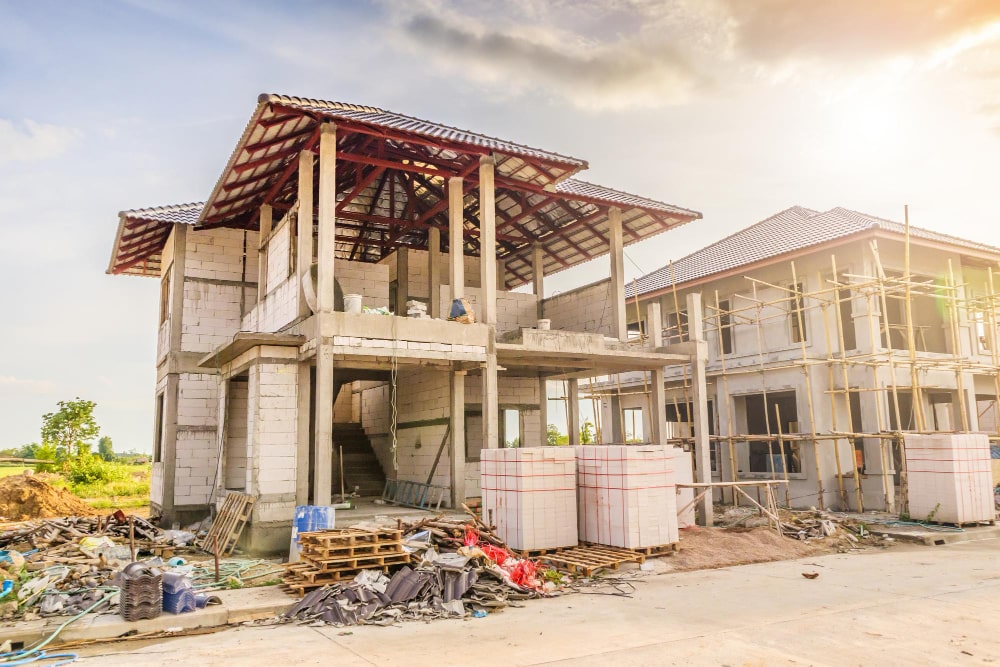Ground-Up Construction Financing: How Hard Money Loans Can Help


Building a custom dream home can seem financially daunting, especially with the complexities of securing traditional loans. However, hard money loans offer a fast, flexible alternative for ground-up construction projects. Unlike conventional lenders, hard money lenders focus on the After-Rehabilitation Value (ARV) of the property rather than your credit score, making them ideal for new builds. These loans feature quick approval, tailored terms, and incremental disbursements based on construction progress. While they come with higher interest rates and shorter terms, a clear exit strategy, strong project management, and staying on budget ensure success. Munshi.Biz provides hard money loans with fast approvals and flexible terms, helping you bring your home-building vision to life. Contact us today to start your project with confidence!
First-Time Homebuyers: How to Overcome FHA Loan Challenges and Secure Approval


FHA loans offer a lifeline to first-time homebuyers facing challenges like credit score concerns, high down payment requirements, and navigating the mortgage process. Unlike conventional loans, FHA loans allow buyers with lower credit scores to qualify for a mortgage with as little as 3.5% down. By addressing key obstacles such as credit score limitations, saving for a down payment, and finding the right lender, FHA loans make homeownership more accessible. At Munshi.Biz, we simplify the FHA loan process, offering expert guidance and personalized solutions to help you overcome challenges and secure your dream home. Contact us today to start your journey.
FHA Loan Approval Made Easy: Your Essential Checklist for 2024


Looking to buy your first home but unsure where to start? This ultimate FHA Loan Checklist for 2024 provides a step-by-step guide to help you secure a loan, even with low credit scores. FHA loans offer lower down payments (as little as 3.5%) and flexible credit score requirements, making them a great option for first-time buyers or those with financial challenges. The guide walks you through evaluating your financial stability, collecting essential documents, finding the right FHA lender, and getting pre-approved—your power move in the home-buying process. Learn how to complete your application, handle inspections, and successfully close the deal. Plus, we offer additional tips to ensure your FHA loan journey is smooth and successful. Contact us for personalized loan support!
The Ultimate Jumbo Loan Guide: Expert Debt-to-Income Ratio Hacks for Homebuyers


If you’re considering a jumbo loan in California to secure your dream home, it’s essential to understand the importance of your Debt-to-Income (DTI) ratio, a key factor in loan approval. A DTI below 45% is generally recommended, meaning your monthly debt obligations shouldn’t exceed 45% of your gross income. To improve your DTI, focus on paying off high-interest debts, consolidating loans, negotiating lower rates, and increasing your income through salary boosts or rental income. You can also opt for a larger down payment or bring in a creditworthy co-signer. Keep in mind that factors like California’s high cost of living and property taxes can impact your DTI, so always assess your financial situation thoroughly. Beyond improving your DTI, a solid credit score, financial transparency, and shopping around for the best lender are crucial for a successful jumbo loan application. For more expert advice and personalized guidance on securing a jumbo loan, reach out to us today!
Navigating Unique Challenges with Jumbo Loans for Self-Employed Borrowers


Securing a jumbo loan as a self-employed borrower can be challenging but achievable with the right approach. Jumbo loans, necessary for financing properties exceeding conforming loan limits, allow access to luxury homes but come with stricter credit, down payment, and income verification requirements. For self-employed individuals, lenders often require higher credit scores (700+), larger down payments (20%+), and extensive documentation like tax returns and profit and loss statements. To navigate these hurdles, maintaining organized financial records, demonstrating consistent income, improving debt-to-income ratios, and boosting credit scores are essential. Additionally, working with experienced jumbo loan lenders and comparing rates can help secure favorable terms. By overcoming these challenges, self-employed can unlock access to high-end properties with jumbo loans.
Optimize Your Wealth: BRRRR Method with DSCR Financing


The BRRRR method (Buy, Rehab, Rent, Refinance, Repeat) is a proven real estate investment strategy that enables individuals to build wealth through renovation and rental income. By using DSCR (Debt Service Coverage Ratio) loans, investors can secure financing based on the property’s cash flow rather than personal income, making it more accessible even for those with lower credit scores. The BRRRR strategy involves purchasing undervalued properties, renovating them to boost rental value, refinancing to unlock equity, and reinvesting the profits into new properties to grow a portfolio. DSCR loans enhance the process with lower monthly payments, increased cash flow, and reduced reliance on personal credit. However, success depends on thorough market analysis, budgeting for renovations, and managing tenants effectively. Munshi.Biz offers expert assistance in navigating the BRRRR strategy and DSCR loans, helping you build a profitable real estate portfolio. Contact us today for personalized guidance on leveraging this powerful wealth-building tool.
DSCR Loans vs. Hard Money Loans: Choose the Right Option


When deciding between DSCR loans and hard money loans for real estate investment, it’s essential to understand how each can impact your financial goals. DSCR loans prioritize a property’s cash flow, focusing on the Debt Service Coverage Ratio (DSCR) to evaluate affordability, making them ideal for long-term, income-generating properties. They offer longer loan terms, lower credit score requirements, and stable monthly payments. On the other hand, hard money loans are short-term, fast-funding options, perfect for fix-and-flip projects with flexible credit requirements but higher interest rates and shorter repayment terms. Investors with quick funding needs, lower credit scores, or niche projects may benefit from hard money loans, while DSCR loans are best for those seeking long-term stability and consistent cash flow. Ultimately, the choice depends on your investment strategy, financial situation, and property type. Reach out for expert guidance to make the right decision for your investment needs.
FHA Refinancing: A Safe Haven to High Mortgage Rates


FHA refinancing programs offer a valuable solution for homeowners struggling with high interest rates by providing options to reduce monthly payments, secure lower rates, or access home equity. FHA Streamline Refinance offers a quick, hassle-free process for those with existing FHA loans but doesn’t allow cash-out. FHA Simple Refinance offers better rates or shorter terms with credit checks but no cash-out option. FHA Cash-Out Refinance lets homeowners access up to 80% of their home’s value, while FHA 203(k) Refinance funds home improvements. Each option has specific eligibility, credit, and appraisal requirements. FHA refinancing can lower interest rates, shorten loan terms, and reduce payments, making it a great option for homeowners seeking financial relief. Contact Amish Munshi today to learn more and start your FHA refinancing journey!
Building a Strong Credit Profile to Qualify for a Jumbo Loan: A Step-by-Step Guide


Building a strong credit score is essential for homebuyers looking to secure jumbo loans, especially in high-cost markets like California. Jumbo mortgage lenders typically require a credit score above 700 to minimize risk, making creditworthiness a key factor in loan approval. To strengthen your credit profile, start by obtaining and reviewing your credit reports, disputing any errors, paying bills on time, maintaining a credit utilization ratio below 30%, diversifying your credit mix, and avoiding multiple credit applications at once. Regularly monitoring your credit and seeking professional help if needed can further improve your score. Patience is crucial, as building a solid credit history takes time, but the benefits extend beyond jumbo loan eligibility, offering lower interest rates and better terms on other financial products. Following these steps will help you meet jumbo loan requirements and improve your overall financial standing.
How to Refinance a Jumbo Loan in 2024?


Refinancing a jumbo loan can help reduce your mortgage expenses and improve loan terms, especially when interest rates drop or your financial situation improves. By refinancing, you may secure lower monthly payments, access cash through a cash-out refinance, or switch from an adjustable-rate mortgage (ARM) to a fixed-rate mortgage (FRM). However, refinancing isn’t for everyone, as it requires a strong credit score, low debt-to-income ratio (DTI), and sufficient home equity. Key steps in the process include selecting a lender, gathering documents, conducting a home appraisal, and finalizing the loan. Be sure to weigh factors like interest rate savings, financial stability, loan term, and closing costs before proceeding. Shopping around for the best jumbo loan refinancing lender is essential to finding favorable terms. Contacting a lender will help you determine if refinancing is the right choice for your financial goals.
